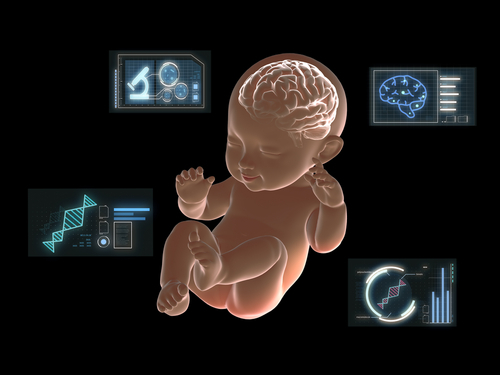Post stroke, babies use opposite side of brain for language
IANS Feb 19, 2018
A stroke in a baby -- even a big one - may not have the same lasting impact as it could in an adult. Researchers have found that they regain language function in the "opposite side" of the brain if they experience a stroke around the time of birth.

About one in 4,000 babies suffer a stroke shortly before, during, or after birth. The researchers found that a decade or two after a "perinatal" stroke damaged the left "language" side of the brain, affected teenagers and young adults used the right sides of their brain for language. The findings, presented in a symposium at the American Association for the Advancement of Science (AAAS) Annual Meeting at Austin in Texas, demonstrates how "plastic" brain function is in infants, said Elissa Newport, Professor of Neurology at Georgetown University School of Medicine in the US.
The study found that all the individuals studied, aged 12 to 25, who had a left-brain perinatal stroke, used the right side of their brains for language. "Their language is good -- normal," she said. The only telltale signs of prior damage to their brain are that some study individuals limp a bit and many have learned to make their left hands dominant because the stroke left the right hand's functions impaired, the researchers said.
But basic cognitive functions, like language comprehension and production, are excellent, Newport said. Furthermore, imaging studies revealed that language in these participants is all based on the right side in an exact, mirror opposite region to the left normal language areas.
-
Exclusive Write-ups & Webinars by KOLs
-
Daily Quiz by specialty
-
Paid Market Research Surveys
-
Case discussions, News & Journals' summaries